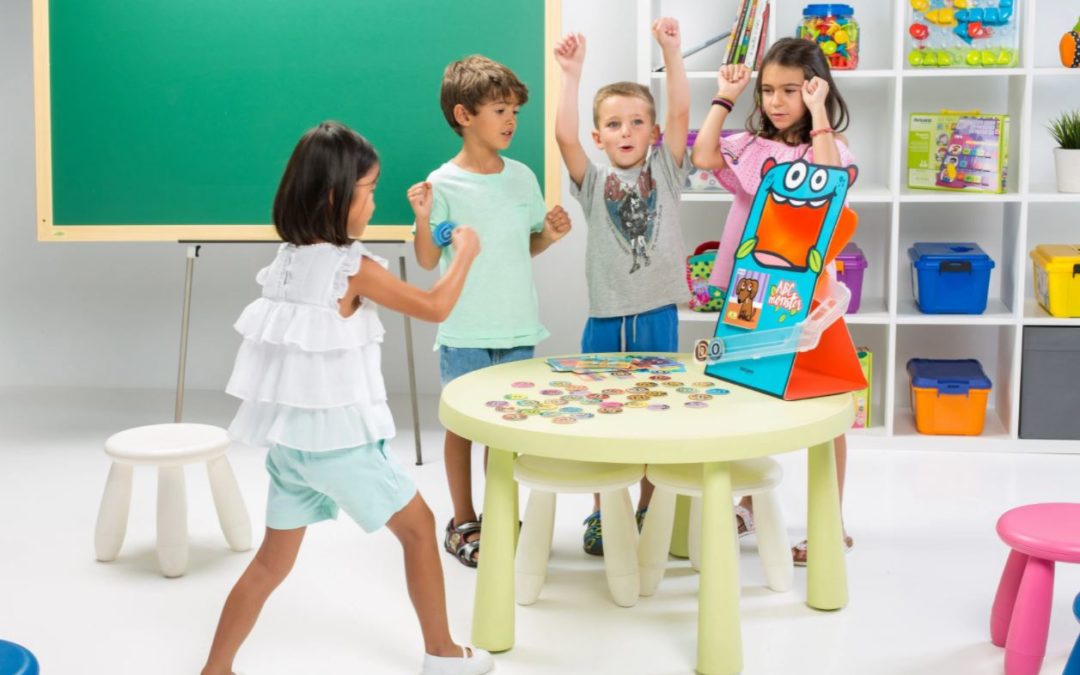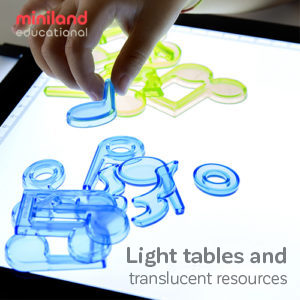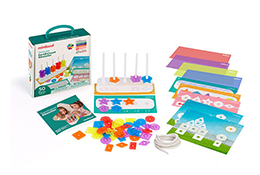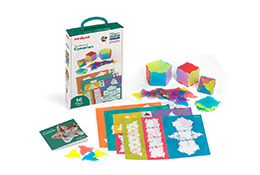These concepts are timeless because every generation prepares the next to live in a world they’ve not experienced themselves, and to play roles they’ve not necessarily imagined. But these skills-sets are more important today than ever before. According to UNESCO, contributing successfully to a sustainable world relies on a host of skills, including flexibility, self-confidence and intercultural competence.
Children will grow to navigate a landscape that expects them to change jobs every 2–5 years, where frequent career changes are normal and where technological innovation threatens to confuse even the most tech-savvy if they fail to pay close attention. However, even if things are in a state of change, there is no need to panic.
As an ECD teacher, there are fun ways to prepare your kids to be future-ready. The trick is to consider curriculum content as a way to teach skills, and frame encounters with threshold concepts.
Even as a new teacher, using carefully selected educational toys and learning aids can help you make sure you never feel alone or overwhelmed in this task, no matter how daunting it might appear!! Specialist toymakers such as Miniland, have dedicated themselves to developing a range that helps you to deliver the ECD curriculum in an integrated way. Here are 4 ways Miniland educational toys will help you bring 21st Century skills development into your classroom:
To be future-ready, remain in the present
Mindful Kids is a learning aid that helps you facilitate 36 cross-curricular activities that develop mindfulness — a state of non-judgemental awareness. To be mindful means you’re able to remain in the present. This allows you to problem-solve with clarity of mind, and allows space for critical thinking and emotional intelligence to flourish. Engage in a daily 20-minute mindfulness routine in your classroom with the help of Mindful Kids. It will effortlessly develop the essential 21st Century skills listed here, and have the added bonus of growing a sense of self-discipline in each child that helps minimize behavioral disruptions. As a teacher delivering the necessarily student-centered, project-based curriculum that 21st Century skills development requires, this makes your life much easier.
“It takes a village to raise a child”
This is one variation of many African proverbs that capture the essence of an important idea when nurturing 21st Century-ready children — that community plays an important role in their socializing and teaching. It’s easy to exclude the influence of almost all other adult interactions when you work within the school system, but the old wisdom of collective childcare needn’t be discarded. Making your classroom a place that invites parent and guardian participation can be easy with Miniland. For instance, a game of Dictate and Shape during an open day can easily be guided by a visiting parent. In this way, your class forms constructive (and supervised) relationships with elder members of their community while also developing 21st Century-ready skills of active listening and teamwork.

Focus on active collaboration, collective creativity and continuous learning
Miniland’s Follow the Big Foot is one game that provides plenty of opportunities for your class to grow their imagination and develop teamwork skills. You can also easily use it as an activity to deliver multiple curriculum subjects. The aim of the game is to follow an obstacle course which leads to discovering the bigfoot. A language or cultural geography lesson could easily begin with sharing your area’s indigenous folklore about this mythical creature. The storytelling aspect of this group reflection develops language capability and exposure to the local folklore teaches your class about the history and diversity of the land they’re living on. These are all essential aspects of the 21st Century skills set.
Do things digitally
With each Miniland purchase, you gain access to Play Miniland. This is a platform of digital resources used with any Miniland product to engage your class in a multiplay experience. You expand the range of activities you can facilitate, and increasing your students’ digital and technological literacy at the same time. This helps you keep children engaged in the deep learning that comes from multiplay experiences, and grows them into responsible internet users, who are able to protect themselves from online predators. The usual risks of online activity are mitigated when your students are armed with critical thinking, and a familiarity with digital and real-world integration that supports discerning innovation from our future leaders that are currently sitting in your classroom!
Why not dive into the Mindful Kids program and explore it’s Play Miniland extension? It’s a great way to begin growing 21st Century knowledge in your classroom and you’ll reap the rewards sooner than you think!




